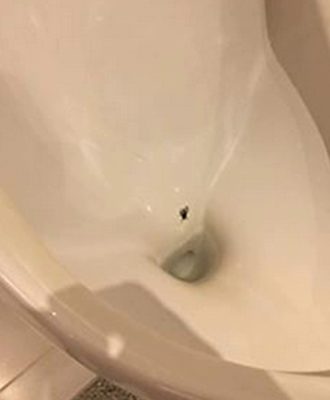
. . . using behavioral insights.
Writing is a set of behaviors, and all behaviors are affected by identifiable factors. By appropriately altering selected factors, we can improve our writing habits. As a behavioral scientist, I will list below ideas to improve your writing habits.
Behavior is Everything We Do. To be studied scientifically and for our practical purposes, behaviors must be observable and measurable. We can describe writing as the production of words; and we can measure writing, for example, in terms of number of words per minute or within a writing session.
Four terms that encompass behavior are motivational operations, antecedents, behavior, and consequences.
1. Motivational Operations (MO) are activities and occurrences that increase or decrease the likelihood that a person will (A) find a particular type of consequence satisfying and (B) will repeat the behavior to get that consequence. For example, the passage of time since eating is an MO related to eating and enjoying food, and an MO for physical activity is relaxing for a period of time. We can use this insight to increase writing. For example, we can ask “What motivates me?” and “How can I arrange my writing to take advantage of my motivators?” One answer might be to arrange our eating or physical activities so they occur only after certain targeted amounts of writing are complete. Each of us can examine our motivations to arrange “if-then” contingencies between motivations and writing.

2. Antecedents or Nudges occur before behaviors and indicate what behaviors may be reinforced or punished. Nudges should be arranged to be timely, clear, and descriptive of desired behavior. Writers might post notes at prominent places around their homes and in their writing areas that describe what writing behaviors they desire, for example, “Draft the preface” or “Select a topic to write for the next pod meeting” or “Write outline for _____ ” or “Write first page of _____.”
3. Behaviors of writing should be written in observable and measurable terms. Follow completion of targeted behaviors with satisfying consequences to strengthen them. An analysis of tasks to be done to finish the project should be completed so that both the writer and an outsider can see progress.
4. Consequences can be categorized into those that strengthen (Boost) and those that weaken behaviors. Consequences should come ASAP after behaviors. Writers could develop a list or “menu” of desired consequences related to various levels of accomplishment, arranged from relatively minor (e.g., eat a cracker) to major (e.g., spend 10 minutes on Facebook).
A Composite Case Study
Ted, like most writers, actively observes and notes events in his daily living that he wants to write about. He enjoys the products of his writing efforts and looks forward to publishing stories, or even a book of memoirs, but he finds it hard to stay on task. He has noticed distractions (reading the newspaper, looking at Facebook, and completing Sudoku puzzles) compete for his time to write. A while back he set himself a goal of writing 50,000 words in one month to “get himself going,” but so far he had just thought about that goal and typed next to nothing.
Upset by his lack of writing productivity, Ted searched for and found in behavioral science several strategies for decreasing distractions, increasing motivation, and improving productivity. He described to his writing support group actions he took to reach his goal of writing 50,000 words:
• To reduce distractions, I rearranged my writing area so my visual field included only materials related to my writing topic. I lowered the blinds on windows, added a pad to my chair to reduce “butt fatigue,” and turned off my phone.
• For motivation, I placed above my computer a mock-up of the front cover of my book. This helped me think about “the big picture.” To the right of my computer, I posted a graph showing: time on-task—that is, total minutes in seat, number of words written, and number of words saved (words suitable for sharing). To the left of my computer I posted a “menu” of reinforcers and the “costs” for each: “Stand and stretch” after writing for 5 minutes. “A Sudoku puzzle” cost me 30 minutes of writing.
• I managed consequences in multiple ways. At first, I started small. I required very little writing before I allowed myself a reward. I gradually increased the requirements, but I broke large tasks into smaller steps. I sometimes deprived myself of items on the menu unless I wrote.
• I used reinforcement to build selected virtues. I found self-reinforcement entertaining, and I enjoyed graphing my productivity. Soon I realized I was competing against my previous goals as I saw the data soaring.

Today Ted is telling his colleagues about the behavioral-insightful strategies he is using and his rapid progress toward writing 50,000 words in one month. When not writing he is reading more about behavior analysis and gaining insights into other factors he might use.
For more information on this topic, check out the Cambridge Center on Behavioral Studies.

Ann~Marie Magné
To reduce distractions I close my eyes, then fall asleep. To further reduce distractions I tape the refrigerator shut. For motivation I put my laptop on the dining room table which allows me to snack AND write, after ripping the tape off the fridge. Consequences never enter my mind; I’m retired and can do what I want.
All of that is false, of course; my true motivation is the joy and sense of accomplishment the act of writing provides. Distractions are many and frequent because, as it’s been said by thousands of retirees, I’m busier now than when I worked. But those distractions are never powerful enough to keep me away from the story for very long. Writing is my favorite thing to do. The true consequence of neglecting to write is feeling the day was incomplete through my own fault.
Thank you, Robert, for “spelling out” what my good/bad behavioral instincts are.
Bob Crow
Thanks A-M: I appreciate your personal “insights” into the processes and rewards of writing. I feel your and I are on the same page – figuratively !
Warm wishes, Bob